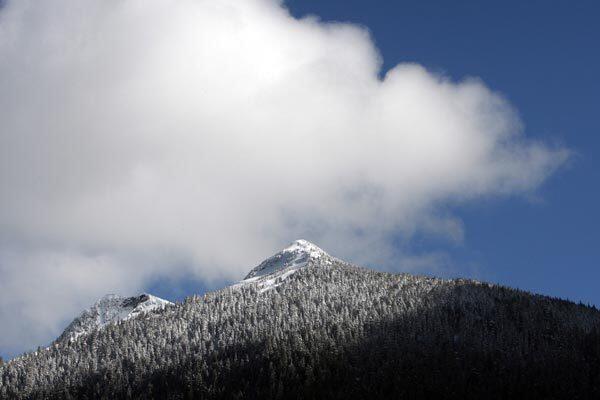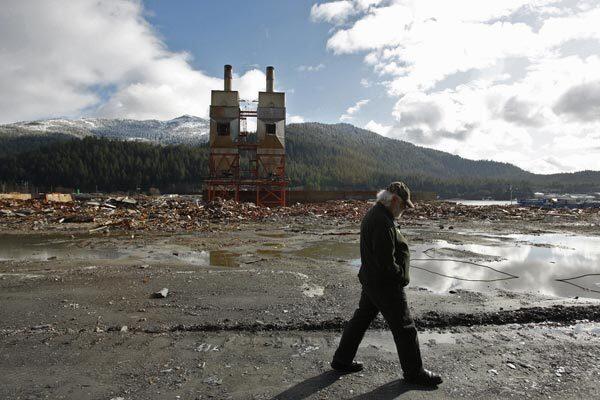
“As you see, it’s history now,” former logger Johnnie Laird says of Ketchikan’s shuttered Ward Cove Pulp Mill, where he once worked. Laird, who now works as a guide for hunters, is opposed to the bill that would privatize more than 70,000 acres of public lands within the Tongass National Forest. (Genaro Molina / Los Angeles Times)
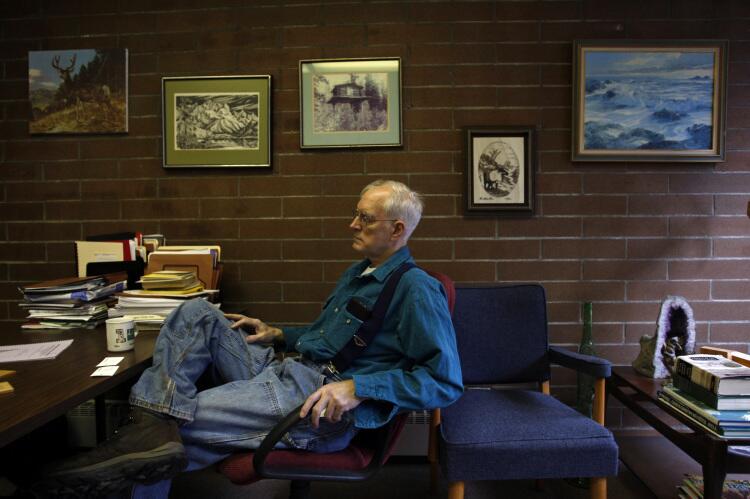
“40% of our timber industry is dependent on Sealaska,” says Owen Graham, executive director of Alaska Forest Assn. in Ketchikan. Sealaska, a Native-owned corporation, is pushing for legislation that would privatize more than 70,000 acres of public lands within the Tongass National Forest. (Genaro Molina / Los Angeles Times)
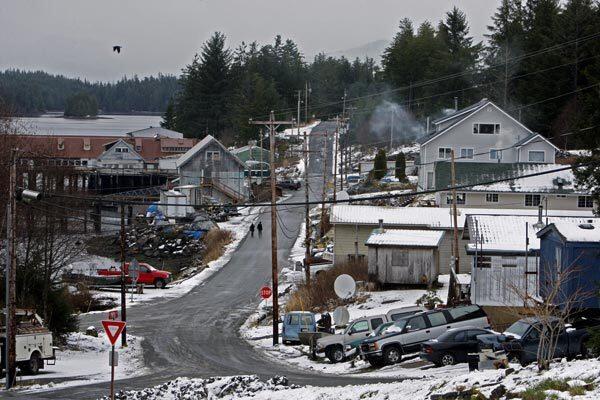
The town of Klawock on Prince of Wales Island in southeast Alaska’s Tongass National Forest. (Genaro Molina / Los Angeles Times)
Advertisement

“I hope that we can all work together for economic development of our island,” Jon Rowan Jr. says of the Senate bill that would allow Sealaska Corp. to continue clear-cutting in new areas of the Tongass National Forest. Rowan is a totem pole carver and teacher on Prince of Wales Island, which lies within the forest. (Genaro Molina / Los Angeles Times)
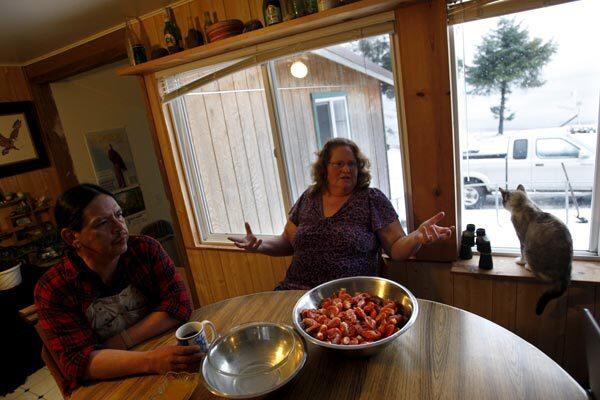
“I’m all for Sealaska getting the land, but at the same time, I don’t want them to log it,” James Anderson says of the bill that would allow the Native corporation to clear-cut new areas of the Tongass National Forest. He and his wife, Forest, live in the town of Klawock on Prince of Wales Island in the forest. (Genaro Molina / Los Angeles Times)
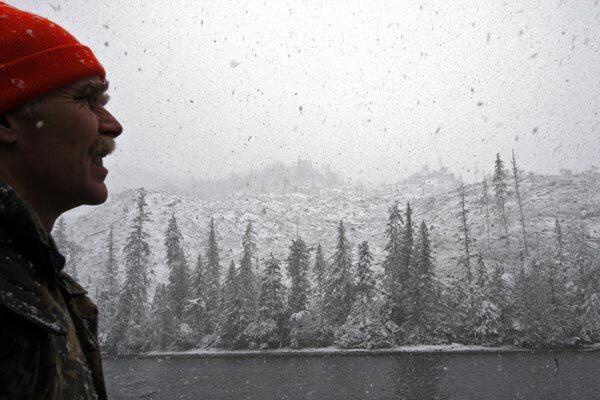
Michael Kampnich, a field representative with the Nature Conservancy, looks over the remnants of clear-cutting on Sealaska Corp. land in Trocadero Bay on Prince of Wales Island in the Tongass National Forest. Kampnich, a former logger, opposes the bill that would allow Sealaska to privatize more than 70,000 acres of public lands within the forest. (Genaro Molina/Los Angeles Times)
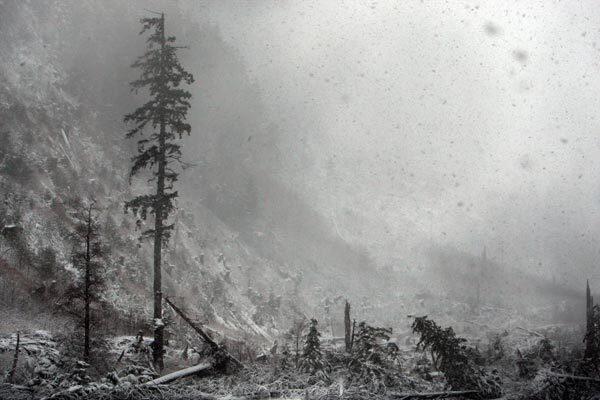
“It looks like a bomb went off,” Bob Claus, a community organizer with the Southeast Alaska Conservation Council, says of the remnants of clear-cutting on Sealaska Corp. land on Prince of Wales Island in the Tongass National Forest. (Genaro Molina / Los Angeles Times)
Advertisement
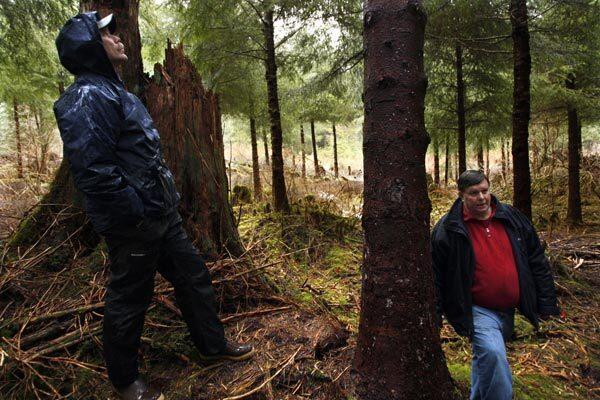
The Nature Conservancy’s Michael Kampnich, left, and Ron Wolfe, natural resource manager for Sealaska Corp., visit Sealaska-owned land on Prince of Wales Island in the Tongass National Forest. (Genaro Molina / Los Angeles Times)
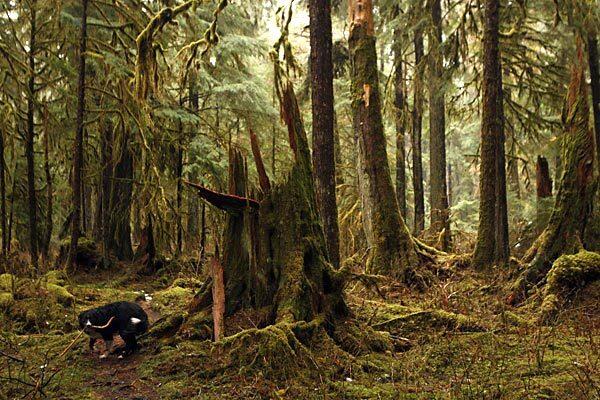
Sweep the dog plays on Prince of Wales Island in part of the 70,000 acres of public land in the Tongass National Forest that the Alaska Native corporation Sealaska hopes to privatize. (Genaro Molina / Los Angeles Times)
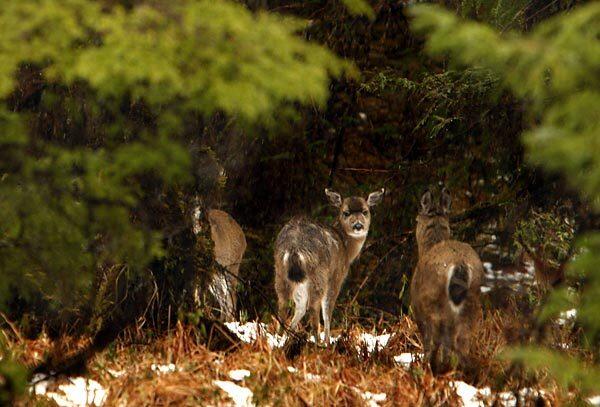
These Sitka black-tailed deer are among the wild residents of the Tongass National Forest. (Genaro Molina / Los Angeles Times)
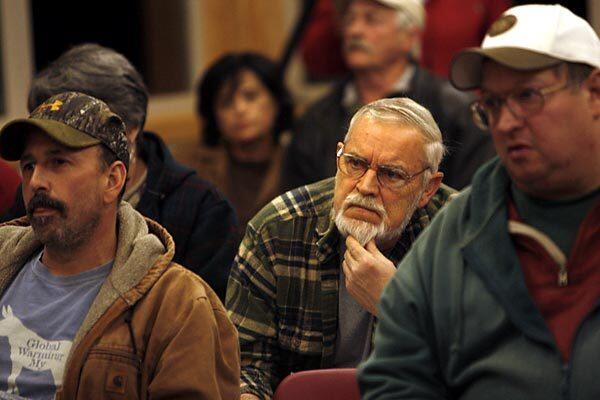
Gary Soderberg, Doug Price and Bryce Brucker, from left, listen with other Coffman Cove residents at a town hall meeting on the Senate bill that would allow Sealaska Corp. to clear-cut in new areas of the Tongass National Forest. The Alaska Native-owned corporation held a series of community meetings on the bill in Coffman Cove, Craig and Thorne Bay on Prince of Wales Island. (Genaro Molina / Los Angeles Times)
Advertisement
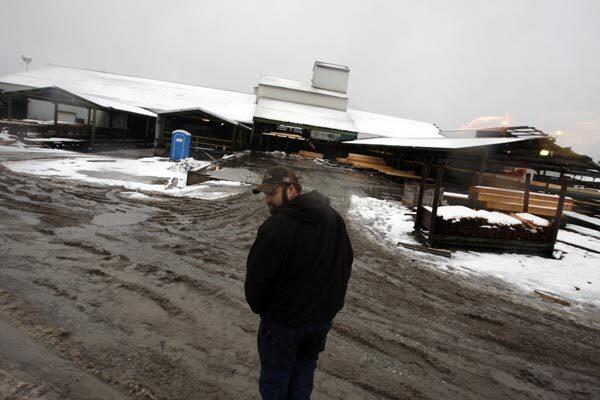
“If they aren’t able to go log that, shut the doors. Done,” Bryce Dahlstrom, assistant manager of Viking Lumber Co. in Craig, Alaska, says of the bill to open new parts of the Tongass National Forest to clear-cutting. (Genaro Molina / Los Angeles Times)
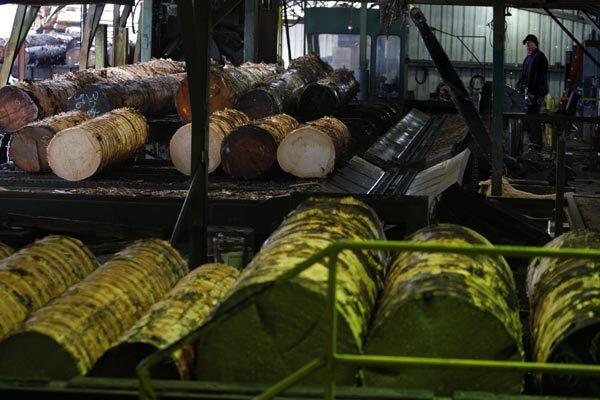
An employee of Viking Lumber Co. in Craig, Alaska, processes logs from the Tongass National Forest. Southeast Alaska’s timber industry is struggling. (Genaro Molina / Los Angeles Times)
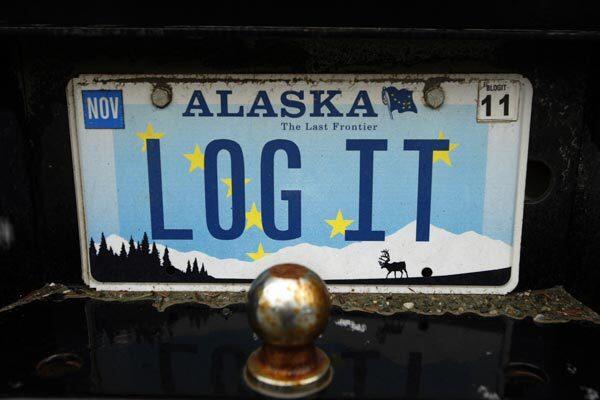
A Thorne Bay driver’s opinion on the Tongass National Forest logging bill is clear. The town on Prince of Wales Island hosted one of many town hall meetings on the bill. (Genaro Molina / Los Angeles Times)
